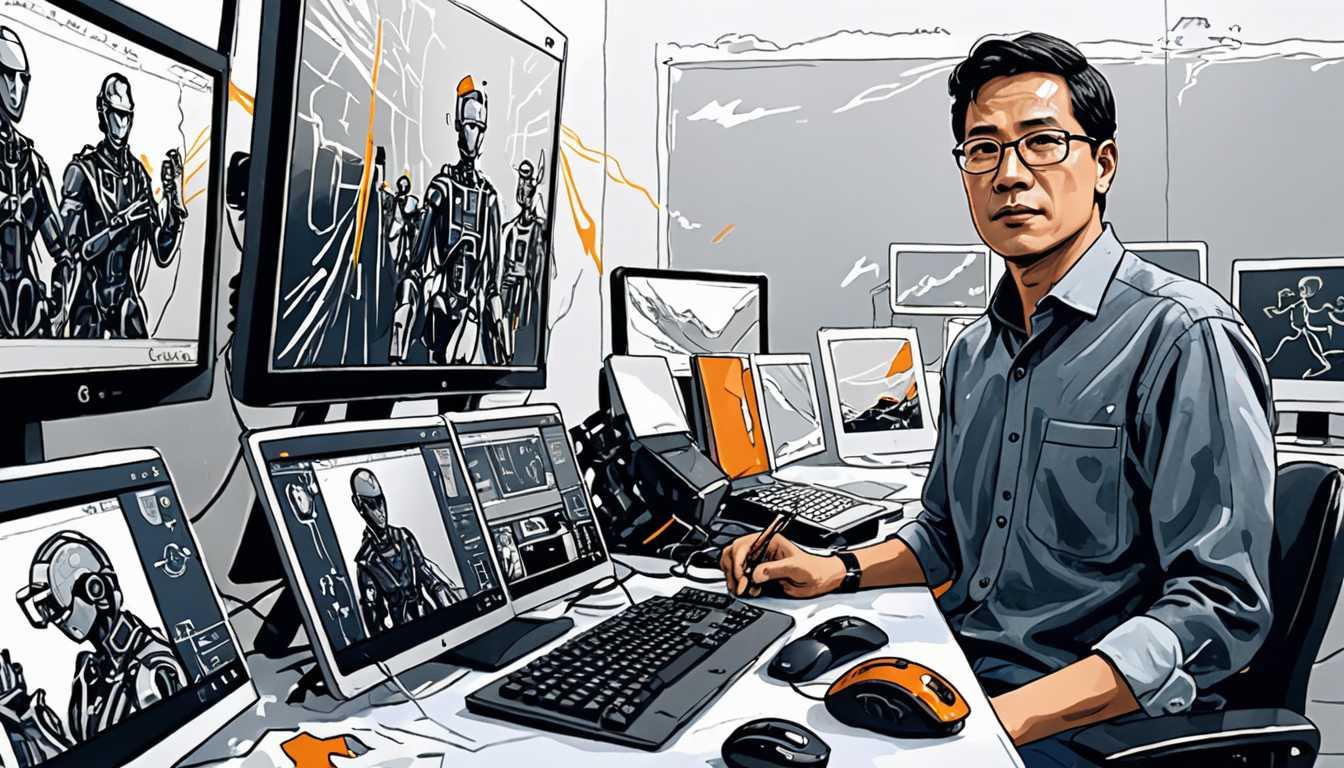Thoughts to Words: Unveiling Brain Secrets
May 2023
MIT Technology Review
Introduction
Imagine a world where your thoughts could directly translate into words without saying a thing. Researchers at the University of Texas, in a groundbreaking study published by MIT Technology Review, have edged closer to this reality. By using noninvasive brain scans and a dash of AI magic, they've decoded sentences from brain activity with surprising accuracy. It's like mind-reading, but for science! Dive into this fascinating exploration of brain-computer interfaces, and ponder the ethical implications of peeking into our brain's chatter.
READ FULL ARTICLEWhy It Matters
Discover how this topic shapes your world and future
Unlocking the Power of Thoughts
Imagine being able to speak without moving a muscle, just by thinking. This isn't a scene from a sci-fi movie; it's becoming a reality thanks to groundbreaking research in brain-computer interfaces. Using noninvasive brain scans, scientists can now translate thoughts into words with impressive accuracy. This breakthrough could revolutionize communication for people who've lost their ability to speak due to injuries or conditions like ALS. But it's not just about restoring speech; this technology opens up debates on privacy and the ethical use of brain data. What if your thoughts were no longer private? How do we protect our mental space in a world where thoughts can be decoded? This topic isn't just fascinating; it's a peek into a future where technology and the human mind merge, raising questions about what it means to be human.
Speak like a Scholar
Brain-Computer Interface (BCI)
A system that allows communication between a human brain and an external device, often used to help individuals with disabilities.
Functional Magnetic Resonance Imaging (fMRI)
A type of MRI that measures and maps the brain's activity by detecting changes in blood flow.
Neuroscience
The scientific study of the nervous system and the brain.
Ethics
The branch of philosophy that deals with questions about what is morally right and wrong.
Semantic Field
A set of words related in meaning; in this context, it refers to the group of words or ideas that a person's brain activity can suggest.
Decoding
In the context of neuroscience, it refers to the process of translating brain signals into meaningful information, such as words or sentences.
Independent Research Ideas
The Evolution of Brain-Computer Interfaces
Investigate how BCIs have developed over time, from invasive techniques to noninvasive methods like the one described, and speculate on future advancements.
Ethical Implications of Thought Decoding
Explore the ethical considerations of decoding thoughts, focusing on privacy, consent, and the potential misuse of technology.
The Role of fMRI in Understanding Brain Activity
Examine how fMRI technology has advanced our knowledge of brain function and its application in various fields.
Communication Aids for Speech Impairment
Research the impact of BCIs and other technologies on improving the lives of individuals with speech impairments.
Neuroscience and Artificial Intelligence
Investigate how neuroscience is influencing the development of AI, particularly in creating systems that mimic human thought processes.
Related Articles

AI Transforms Drug Discovery Speed
June 2023
Massachusetts Institute of Technology (MIT)

AI: A New Era for Accessibility
August 2024
MIT Technology Review

Are AI Ghosts the Future of Chat?
May 2024
University of Cambridge

Mind Talks: Decoding Thoughts into Text
May 2023
Smithsonian Magazine

AI: The Future of Faster Cancer Care
June 2023
University of Cambridge